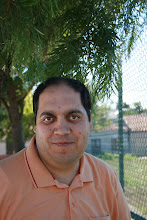Este é o último artigo desta série, se os anteriores eram claramente identificados com questões económicas, este foi submetido numa cadeira de inglês, é portanto uma abordagem muito pessoal a uma obra.
While reading the book A Man for All Seasons, I realized that the events related in the book took place a few centuries ago, but that some things continue the same in our day. For example, Sir Robert More was a great model of all goodness that we find in a person, but he was surrounded by evil and wrong doing.
A few experiences in particular caught my attention. The first was when Roper asked More to marry his daughter and More refused, claiming differences in religion. Second, More’s servant Steward was receiving bribes from More’s “friends,” in exchange for some private information. A third instance and perhaps the most important was when More could save himself from death by just pronouncing some words.
As I mentioned in the previous paragraph, one of the experiences that I like the most in this book took place when Roper, a friend of Sir Thomas More, asks to marry his daughter. As we found from reading the passage, Roper is a Lutheran, and of course, More is a strong Catholic. The conflict starts right here. Sir Thomas More totally rejects the idea of seeing his daughter marrying outside the Catholic Church. Now, this sounds really familiar to me. As a member of The Church of Jesus Christ of Latter-day Saints, and mainly after I came to Idaho and now Utah, I have been really exposed to this concept or idea. Many Latter-day Saint parents do not agree and many times do not support, the idea of having their kids marrying someone outside their church. Understanding that this is a very sensitive concept, it is hard for me to take a position and say that I agree with More or the LDS parents or not. I do understand that life and marriage are already too complicated, so if religion will not unite the couple, things tend to be even harder. With this point of view, I believe and strongly agree that marriage should always stay in the bonds of the same religion. What I can’t accept however, is parents forbidding their kids to marry the one they love. Once a son or daughter decides whom they will marry, the parents should always support them, especially if the only question is religion.
But the book is not only about marriage or religion. Bribes and corruption also occurred in the book. The best passage that describes this is when More’s servant, Steward received some coins in exchange for some information regarding his master, information that in reality was only half true. Steward only tells what the person wants to hear. Steward says, “I could have told him any number of things about Sir Thomas…But that’s what he wanted to know”(p. 42). Later in the book, when Sir Thomas More is having financial struggles, his servant ends up leaving to go to work in another house. Personally, I was really surprised to see that happen. I had the idea that the British servants were really loyal to their masters. But once again, most people in this story reflect only negative values.
Fortunately, Sir Thomas More was a great example of positive virtues, such us righteousness, loyalty and honesty. But most of all More was a sincere man. In a conversation with King, Henry VIII, More is recognized by the king for his sincerity (p. 55). And how sincere was this man? When being on trial for treason, More was given many opportunities to agree with the king’s new changes in religion, but he never did. While in jail, the persecutors sent More’s family to change his mind, but he never did. It come to a point that the persecutors told him just to say that he agreed with the king, even if in his heart and mind he didn’t. But he never did, and he was decapitated.
I never heard of Sir Thomas More experiences until I read this book. I’m well pleased with the example and values that I learned from his life. His life teaches us that we should always stand for what we believe. We can for certain learn much from a person like Sir Thomas More. Sir Thomas More shows us how honesty is important in a person lives. More teach us that dignity is far more important than money and social position. In other words, society needs more “Mores.”
quinta-feira, dezembro 21, 2006
Subscrever:
Enviar feedback (Atom)

Sem comentários:
Enviar um comentário